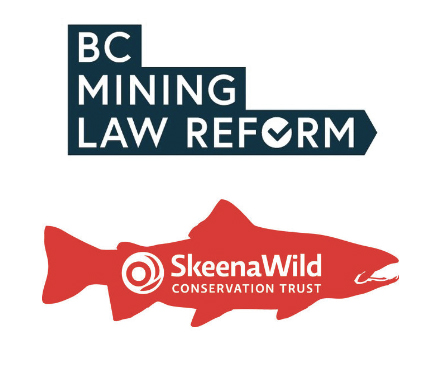 A new report prepared by the B.C. Mining Law Reform and SkeenaWild Conservation Trust concludes that the risk of tailings dam failure in multiple British Columbia mines has likely been underestimated and urges consideration of denying permits for future such mine facilities.
A new report prepared by the B.C. Mining Law Reform and SkeenaWild Conservation Trust concludes that the risk of tailings dam failure in multiple British Columbia mines has likely been underestimated and urges consideration of denying permits for future such mine facilities.
The 96-page report by Steven H. Emerman, who has evaluated proposed and existing tailings storage facilities worldwide, states that British Columbia’s rapidly accelerating mining boom and its related waste threaten communities and watersheds in neighboring states, including Alaska, Washington, Idaho and Montana.
The report coincides with publication of an interactive online map detailing how billions of metric tons of toxic liquid mine waste, called tailings, stored in B.C. dams, present irreversible risks to salmon spawning habitat and U.S. communities downstream.
The report identifies as a major threat the Copper Mountain copper mine, located 25 miles from the Washington border on the Similkameen River, which flows into the Columbia River watershed. Mine operators have proposed a plan to increase the height of one of its tailings dams to 853 feet—250 feet higher than Seattle’s Space Needle. This would make the Copper Mountain mine tailings dam the second tallest in the world.
Further north, one of the four tailings dams at the proposed KSM Project mine, which is slated to be sited close to the Alaska border in Northern B.C. near the transboundary Unuk River watershed, could rise to 784 feet. The facility could hold up to 2.6 billion metric tons of wet tailings, the equivalent of 460,000 Olympic-size swimming pools.
The report, online at https://reformbcmining.ca, includes several recommendations to the B.C. government, including that serious consideration be given to the fact that denying a permit for a facility not yet in existence would be the least expensive option to prevent disasters.
Breanna Walker, director of the Juneau, Alaska-based nonprofit Salmon Beyond Borders, described B.C.’s mining gold rush as “a ticking time bomb,” adding “and we are sitting ducks.”
Walker said this is why communities around Southeast Alaska are asking President Biden to urge a ban on mine-waste dams along the headwaters of Alaska’s wild salmon rivers with their salmon spawning habitat.
The report is based on a review of 86 existing and proposed mines in British Columbia.
Emerman, the owner of Malach Consulting, is a geophysicist and international expert specializing in groundwater and mining, with 31 years of experience teaching hydrology and geophysics. He is the chair of the Body of Knowledge Subcommittee of the U.S. Society on Dams and one of the authors of Safety First: Guidelines for Responsible Mine Tailings Management.
